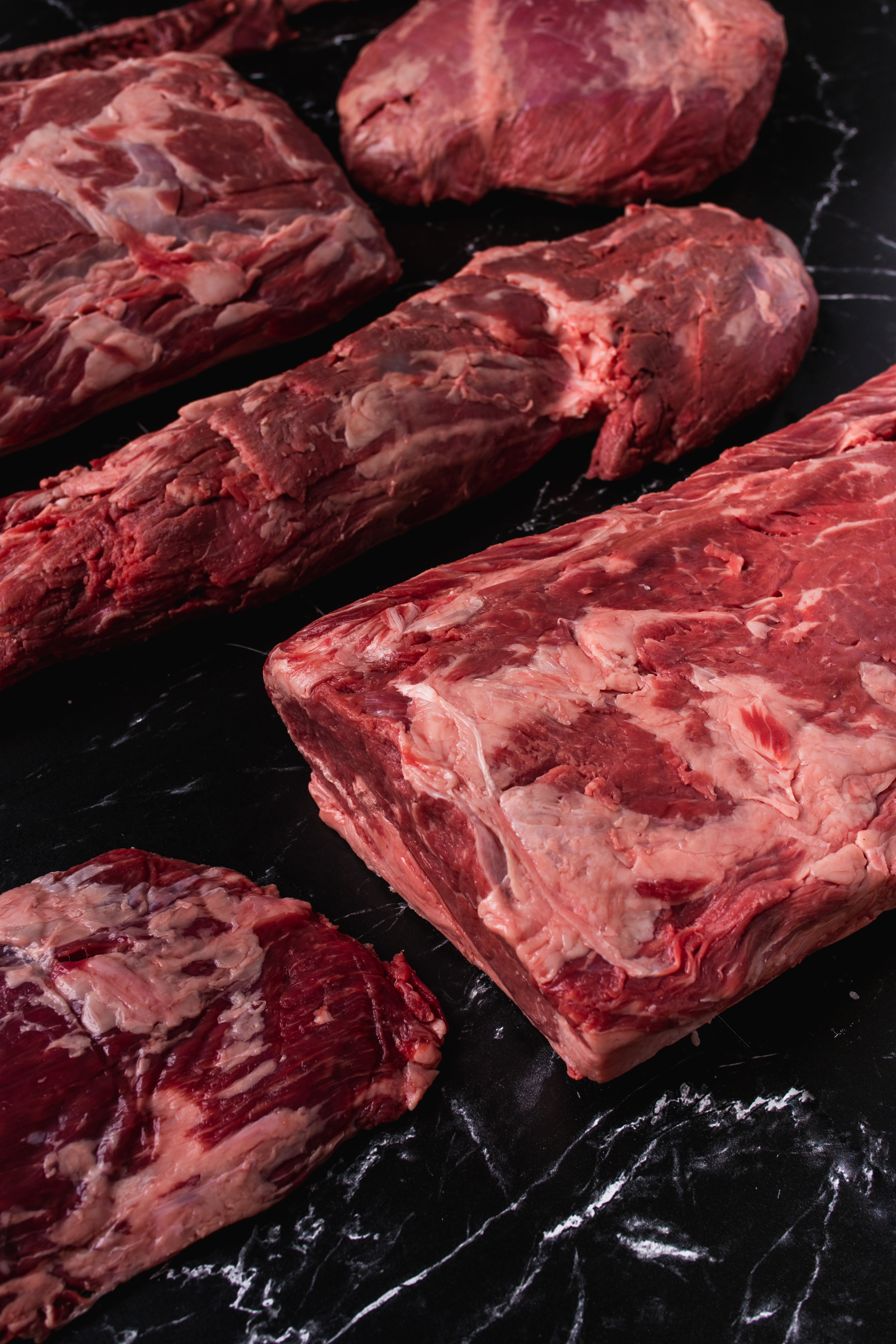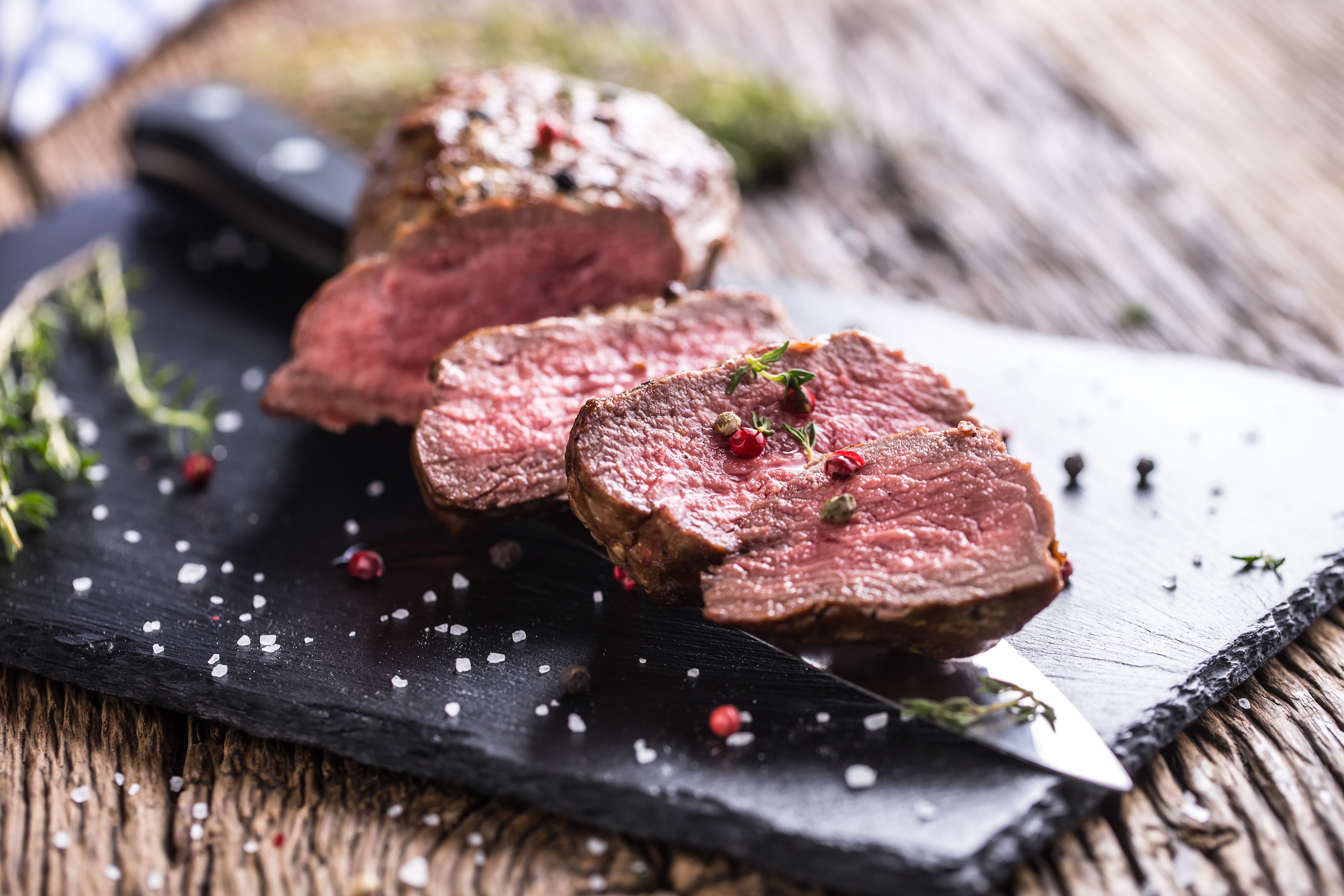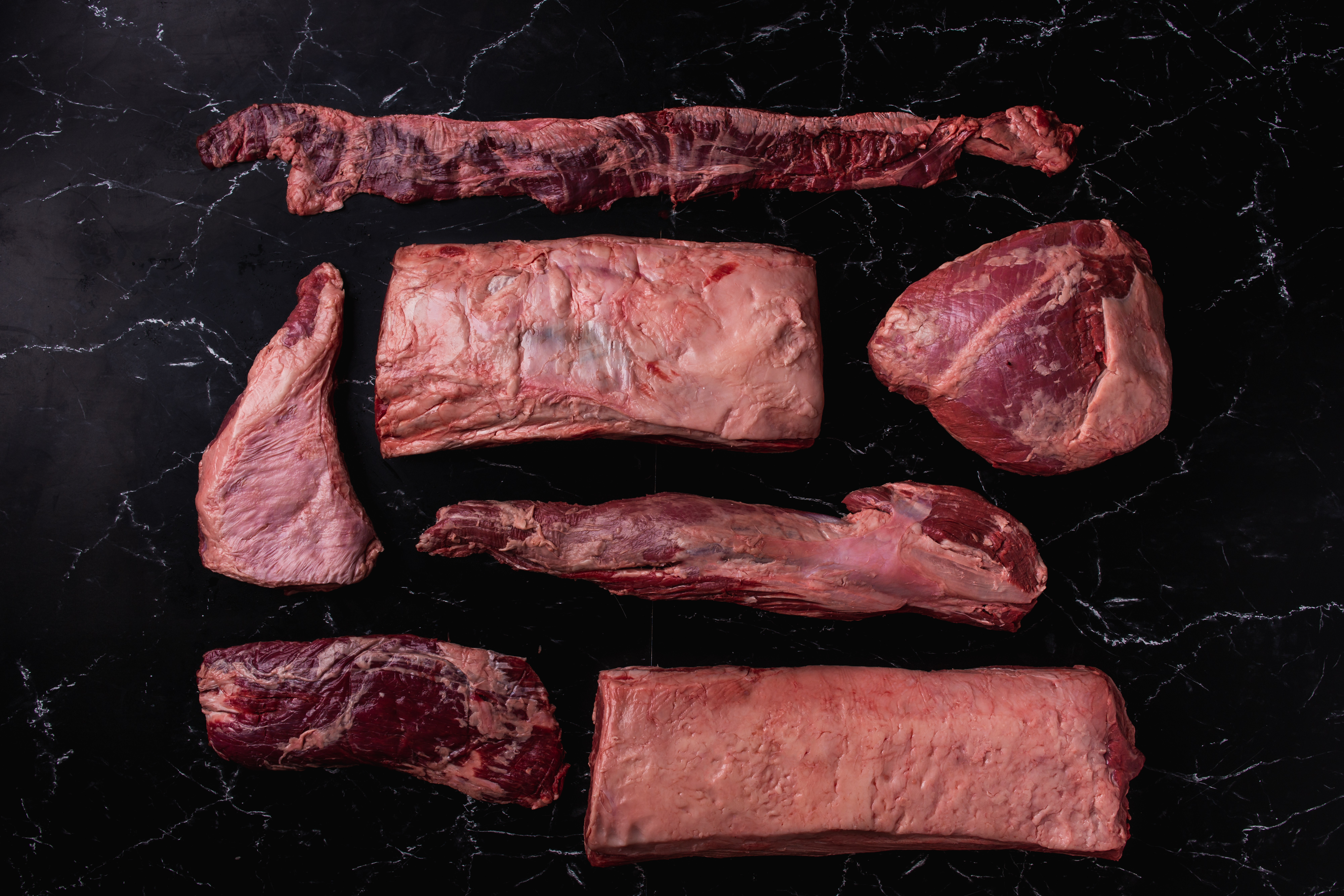Have you ever taken a bite of a steak and marbled at the tenderness? There’s a science behind that first perfect bite. The reason a ribeye holds onto its juices. The difference between melt-in-your-mouth and a though-to-chew slice. At the heart of it all? A number.
It’s called meat pH, and it’s an often overlooked indicator of quality, flavor, and longevity. But when you’re working with world-class beef, you should understand every detail that makes it exceptional.
What Is Meat pH?
pH measures the acidity (or alkalinity) of a substance.
Acidity is like lemon juice — sharp, tangy, and reactive.
It breaks things down quickly. That’s why acidic environments can preserve food or start to “cook” it, like in ceviche.
Acidic substances tend to be sharp, sour, or reactive. Think lemon juice (pH ~2) or vinegar (pH ~3). In meat, a slightly acidic pH helps preserve freshness and inhibit bacterial growth.
Alkalinity is like baking soda — smooth, slightly bitter, and neutralizing.
Alkaline (or “basic”) substances have more hydroxide ions (OH⁻). It slows things down and can make substances feel slippery or soft. But too much alkalinity can also encourage bacterial growth.
In meat, pH falls between 5.4 and 6.4. That range may seem small, but its effects are far from it. From how the meat sears to how long it stays fresh, pH has the final say.
When you are working with premium Argentine beef, pH is a behind-the-scenes marker of careful breeding, low-stress handling, and perfectly timed aging— to deliver the perfect cut.
The Secret to That First Satisfying Bite
pH & Juiciness:
The juicier the meat, the more water it retains. And water retention is directly tied to pH:
- At a low pH (~5.3–5.5), muscle fibers contract tightly, squeezing out moisture—resulting in dry, tight cuts.
- At a slightly higher pH (~5.8–6.2), the muscle structure stays relaxed, locking in juices throughout the cooking process.
If your steaks are losing their silkiness on the grill, don’t blame the fire—check the pH.

Where Chemistry Meets Craft
pH & Tenderness:
Enzymes naturally tenderize meat during aging. But they’re sensitive: too acidic, and they shut down. Too alkaline, and spoilage takes the lead. The sweet spot? A moderate pH (~5.8–6.0) that allows enzymes to do their quiet work—gently unraveling protein structures, enhancing texture, deepening flavor.
The result? A bite that cuts like butter and finishes with depth.
That's why balancing time, temperature, and pH, give you the perfect tenderness.
pH & Shelf Life:
Higher-pH meats are more prone to microbial growth. Even in cold storage, beef with a pH over 6.2 becomes a breeding ground for spoilage bacteria.
Lower-pH meats offer natural resistance, giving you more control over prep timelines and less waste in your walk-in. It's not just about safety—it's about predictability, consistency, and maintaining the integrity of every cut you plate.
What Affects pH?
pH is the story of everything that came before the cut arrived in your kitchen:
- Animal stress before slaughter
- Genetics and breed
- Grass-fed vs. grain-fed finish
- Rate of postmortem chilling
- Aging process and storage conditions
Why Chefs Should Care
Knowing pH gives you the power to:
- Select the right cut for the right technique
- Maximize tenderness and moisture
- Plan aging and storage with confidence
- Reduce spoilage and waste
- Deliver a consistently elevated experience

Unmatched Quality From Our Partners
Our partners and producers Devesa Argentine Beef, raises their cattle on the open pastures of the Argentine Pampas, where cows graze freely on nutrient-rich grasslands year-round. This natural, stress-free lifestyle results in beef that is consistently marbled, remarkably tender, and deeply flavorful.
But Devesa’s excellence doesn’t end in the field. They operate one of the few fully integrated systems in Argentina—overseeing every step from genetics and nutrition to slaughter, chilling, and export. This gives them complete control over pH, aging, and cold chain integrity—ensuring every cut performs at the highest culinary standard.
Their commitment to quality has earned Devesa multiple gold medals at the World Steak Challenge for both their grass-fed and grain-fed beef—including tenderloin, ribeye, and sirloin cuts.
At WorldClass we are committed to partnering with producers to bring chefs beef that’s not just premium—it’s unforgettable. Discover our collection of premium Argentine Beef here.







.webp)






